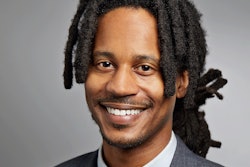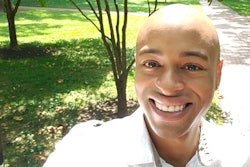LANSING Mich.
The Michigan Supreme Court on Tuesday will begin weighing whether state universities and other public-sector employers can provide health insurance to the partners of gay workers.
But even if gays lose the case, they ultimately could still get benefits, even though a 2004 state constitutional ban against gay marriage threatened those benefits.
Universities and local governments have rewritten their domestic partnership policies in light of the measure.
The new policies no longer specifically acknowledge domestic partnerships but make sure “other qualified adults” including gay partners are eligible for medical and dental care. The adults have to live together for a certain amount of time, be unmarried, share finances and be unrelated.
“It’s a temporary, stopgap method. It’s certainly not a panacea,” said Jay Kaplan, an attorney with the American Civil Liberties Union of Michigan. While no same-sex partners of employees have lost their health insurance while the legal battle continues, many now are getting health insurance only on a pilot basis, he said.
The University of Michigan, Michigan State University and the city of Kalamazoo changed their rules after the state Court of Appeals in February said the gay marriage ban also bars benefits for the same-sex partners of public employees.
The court signaled, however, that benefits for unmarried partners would be OK if they aren’t based on recognizing their “agreed-upon relationship.”
Kaplan said the distinction made by the appeals court was disingenuous.
“You can exist as long as we don’t acknowledge you exist,” he said.
Depending how the high court rules, benefits for gay couples may continue because conservatives who drafted the marriage amendment don’t appear to have big problems with the new benefit policies at least legally.
“They may be constitutional. I don’t anticipate further lawsuits on that particular question,” said Gary Glenn, president of the Midland-based American Family Association of Michigan.
But Glenn and the AFA still oppose same-sex partner benefits.
“From a standpoint of public policy, we don’t believe the taxpayers of Michigan should be forced to subsidize behavior the majority of citizens believe is wrong,” he said.
The redesigned policies’ legality could be on the back-burner Tuesday when the Supreme Court hears an appeal by 21 gay couples who lost their right to have benefits for both partners in the appeals court, although those had them have kept those benefits while the case is being appealed to the Michigan Supreme Court.
The case now focuses on whether voters in 2004 meant to prohibit anything more than gay marriage, and if they did, whether the measure should ban same-sex benefits.
The ACLU, Democratic Gov. Jennifer Granholm, gay activists and public employers say the measure should be restricted to defining marriage as between a man and woman and leave the issue of same-sex benefits alone.
Married couples get rights such as inheritance through laws, they argue, but contractual benefits such as health insurance are negotiated as part of labor agreements. Therefore, contracts that allow benefits to go to same-sex couples shouldn’t be affected by constitutional changes, they say.
Republican Attorney General Mike Cox and conservative groups think voters understood that they were getting rid of domestic partner benefits when they voted for the marriage proposal. Michigan’s gay marriage ban says the union between a man and woman is the only agreement recognized as a marriage “or similar union for any purpose.”
“The word ‘any’ means any,” Glenn said of the amendment’s wording. “That may be broad but it’s not vague.”
Giving benefits to two people of the same sex remains constitutional if those benefits also are offered to other unmarried people, he said. The University of Michigan’s new rules, for instance, appear to let an unmarried widow get health insurance if she lives with an unmarried and similarly widowed university employee.
Michigan’s highest court has a 5-2 Republican majority, and the couples could find the court’s conservatives will stick to what they see as the plain language of the law.
If those justices interpret the constitutional amendment broadly, it’s easy to see why employers and gay workers are nervous. They want to win the underlying case as a matter of principle and not have to fall back on arguing that the same-sex benefit policies are OK as long as they’re worded carefully.
Up to 20 public universities, community colleges, school districts and local governments in Michigan have same-sex benefits policies covering at least 375 couples. Universities, which employ most of those affected, argue that not being able to offer the benefits will hurt them when it comes to recruiting faculty and staff.
Many schools filed papers with the Supreme Court saying the appeals court created a “near disastrous” situation by leaving them to guess whether their benefit packages are legal and putting employees “in a continual state of uncertainty and anxiety.”
Sixteen of the gay plaintiffs have partners who currently get health benefits. Five others work for the state, which agreed to start offering same-sex benefits in 2004 but won’t put them into place until courts clear up the dispute.
The case is National Pride at Work v. Granholm
On the Net:
American Civil Liberties Union of Michigan: http://www.aclumich.org
American Family Association of Michigan: http://www.afamichigan.org
Attorney General Mike Cox: http://www.michigan.gov/ag
Gov. Jennifer Granholm: http://www.michigan.gov/gov
Michigan Supreme Court: http://www.courts.michigan.gov/supremecourt
National Pride at Work: http://www.prideatwork.org
© Copyright 2005 by DiverseEducation.com















